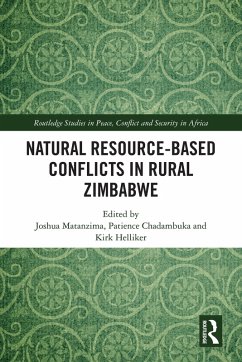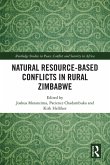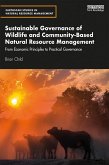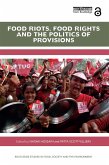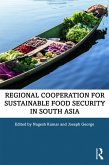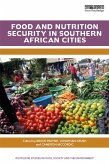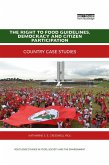Zimbabwe is a country rich in natural resources, including land, wildlife, minerals, and water resources. These resources are integral to the formal and informal livelihoods of most Zimbabweans, as well as supporting many key industries. Wildlife, land, and water resources are also embedded in indigenous knowledge systems, religious beliefs, and rituals in many rural communities, forming an important part of people's identity and sense of belonging. However, this book demonstrates the ways in which rural communities are being denied access to these resources and being displaced by extractive companies and the government. Their response is often to turn to violence to try to reclaim their lands. Drawing on original empirical research from different conflicts across Zimbabwe, the book also considers the issue in the context of problems such as climate change, human-wildlife conflicts, and politico-economic crises.
This book will be useful to policy makers, students, conservationists, and academics across the fields of sociology, human geography, development, political science, and environment studies.
Dieser Download kann aus rechtlichen Gründen nur mit Rechnungsadresse in A, B, BG, CY, CZ, D, DK, EW, E, FIN, F, GR, HR, H, IRL, I, LT, L, LR, M, NL, PL, P, R, S, SLO, SK ausgeliefert werden.

